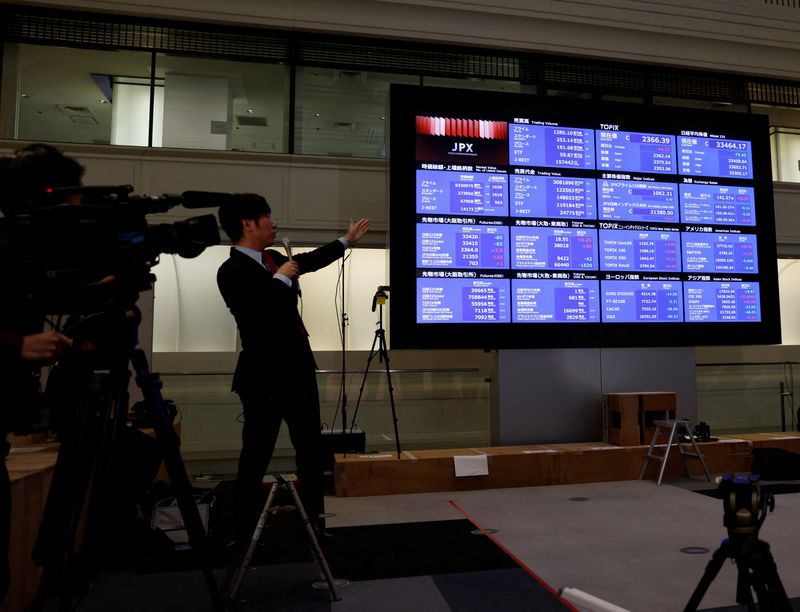Global hedge funds chase Hong Kong stocks rally, UBS says
2024.05.02 22:50

By Summer Zhen
HONG KONG (Reuters) – Global hedge funds that use an equities long-short strategy are growing increasingly bullish on China, evidenced by the heavy pick-up in their purchases of Hong Kong-listed shares, UBS Group said in a note.
Hong Kong’s stock markets, which closely mirror China’s struggling performance, have recovered since March as Beijing rolled out economic support measures. The rose more than 7% in April, marking its best monthly gain since January 2023 and outperforming most major markets.
Swiss bank UBS said in a note Hong Kong market trends had changed in the final days of April, in contrast to that since February when most inflows came from short covering. As Hong Kong stocks rose, fundamental long-short hedge funds continued to accumulate Hong Kong-listed Chinese companies, according to the UBS note tracking hedge fund flow, dated May 1.
Most of the buying was focused on the technology and consumer discretionary sectors, UBS said, without disclosing the amount of flows.
Index heavyweights Meituan, Tencent and Haidilao jumped 21%, 15% and 13%, respectively, last week.
Many funds entered 2024 bearish on China while being overweight stocks in Japan and the United States.
However, sentiment towards the world’s second-largest economy has improved after measures to stabilise the market, a slight easing in U.S.-China tensions and declines in both U.S. and Japanese markets.
Beijing is also showing signs of resolving a property crisis through policy easing and clearing housing inventory.
UBS last week upgraded China and Hong Kong stocks to overweight, while Goldman Sachs said China was poised for a “re-rating”, citing the latest government guidance aimed at strengthening corporate governance and raising the quality of listed firms.
Meanwhile, some large global long-only funds appear to be adding to their China positions through Hong Kong stocks, according to a sales note by BofA Securities issued on Thursday.
Given the recent volatility in markets such as Japan and U.S., “investors could be looking for inexpensive diversification for their portfolio in HK or China,” the sales note said.
Both and U.S. benchmark fell more than 4% each last month.








